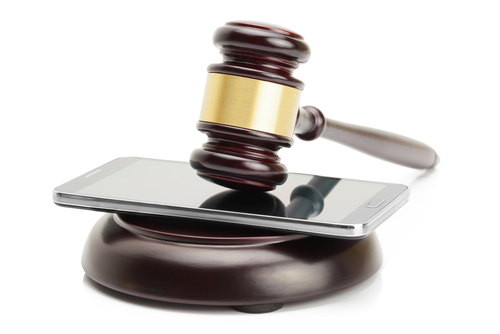Police Cellphone Searches and Your Rights in Canada
In recent months, I’ve been examining the threats to our privacy and charter rights under upcoming legislation such as Bill C-51. One implication of the bill would potentially provide border guards with increased power to search travelers’ Smartphones- a particularly timely topic given publicity surrounding the case of Alain Philippon, a Quebec man charged in March for refusing to provide his Smartphone password to border guards at the Halifax airport.
As it stands, legislation surrounding the authorities’ ability to search one’s Smartphone differs between police officers and Canada Border Services Agency (CBSA) agents. Currently, police may only search your phone with a specific warrant- and that search must be conducted under narrow circumstances surrounding the case. If you have been arrested, police do have the right to an extensive warrantless search, but the search must still be related to that alleged crime, and nothing more.
When interacting with CBSA agents, the process differs; the reason being that in approaching a border you are engaging your liberties and theoretically reducing your expectations of privacy. Border guards have the right to search bags and goods to examine whether travelers are carrying contraband such as weapons. And currently, the law does not differentiate cell phones and Smartphones from any other type of searchable goods.
Is this fair? In my opinion, no. Smartphones are unlike any other item that we carry on our person, as they contain private information about everything from our financial interactions to our sexual orientation. And the availability of this information on the “home screen” makes it difficult for authorities to perform a “narrow search” given that information is available in plain sight upon unlocking the device. As a Criminal Defence Lawyer in Toronto, I believe that the proliferation of Smartphone usage calls for new standards to be created surrounding the type of searches CBSA agents can perform when they do not have specific suspicion about an individual.
Unfortunately, such challenges to the outdated legislation have yet to take place. Even then, as citizens, we cannot always count on authorities to follow the letter of the law- we need to keep our wits about us and exercise our right to refusal and right to silence accordingly. If you have been wrongfully searched, evidence seized can be thrown out with an application from your Criminal Defence Lawyer. Wrongful searches and subsequent wrongful arrests are far too common, and as a Criminal Defence Lawyer, I have assisted countless clients in securing their freedom and restoring their rights in this regard. Reach out to my office for a free, confidential consultation to learn more about how I can help you in the event of a wrongful search or detainment.
-------------------------------
Do you believe that CBSA agents should have the right to freely search your Smartphone?
